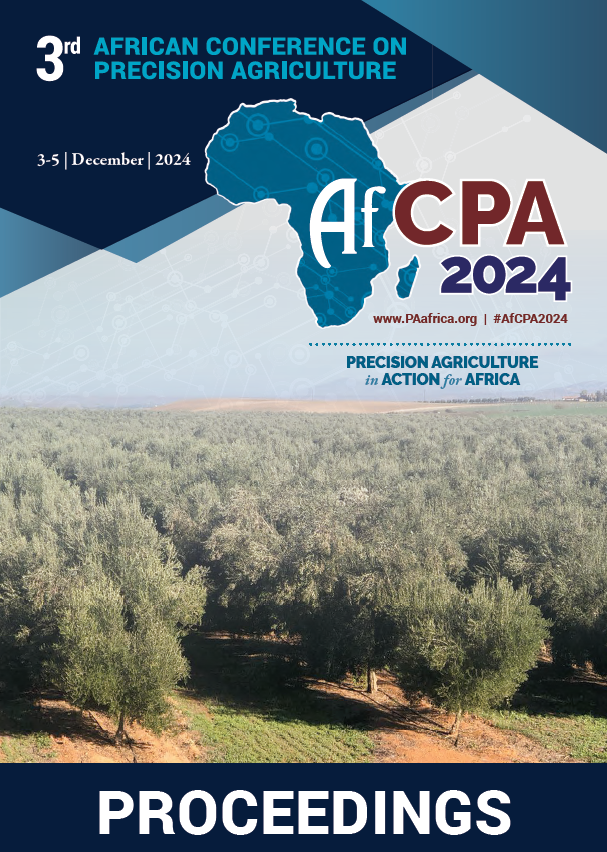Download the Conference Proceedings
Proceedings
Authors
| Filter results5 paper(s) found. |
|---|
1. Mapping spatial variability of soil nutrient deficiencies in smallholder villages – a prerequisite for improved crop production in AfricaSmallholder farming is the dominating type of agricultural production in many parts of Africa. If cultivation practices can be adapted to match the specific needs of individual smallholder plots, this can certainly be regarded as a form of precision agriculture (PA), considering their limited size. A fundamental prerequisite for successful application of PA is the availability of basic information on soil properties at a detailed enough level. To fill yield gaps, site specific information must... M. Söderström, K. Piikki, J. Kihara, J. Mutua, J. Wetterlind |
2. CropSAT – opportunities for applications in precision agriculture in AfricaThe present paper aims at describing the CropSAT system, a Sentinel-2-based interactive decision support system (DSS) that provides vegetation index (VI) maps free-of-charge all across the globe for different applications in precision agriculture. We summarize research results from the ongoing developmental process and pointing to opportunities for development and application in precision agriculture in Africa. The DSS was initially developed in a research project at the Swedish University of... O. Alshihabi, I. Nouiri, M. Mechri, H. Angar, K. Piikki, J. Martinsson, M. Söderström |
3. Improving Phosphorus Use Efficiency by Chickpea Crop Using Electromagnetic Induction, Soil Properties, and Crop Yield Data Under Semi-arid ConditionsUnder arid and semi-arid conditions, the agricultural sector faces many challenges related to the use of water and mineral resources for crop production and food security for an exponentially growing population. The impact of climate changes on water resources availability and soil quality is more and more emphasized under the Mediterranean basin, mostly characterized by drought and extreme weather conditions. The present study aims to investigate how electromagnetic induction technique and soil... M. Chtouki, A. Oukarroum, F. Nguyen |
4. From Drone to Satellite – Does It Work?Multispectral drone-sensors are useful for detailed studies of crop characteristics in field trials, e.g. to create prediction models on nitrogen (N) uptake, or even estimates of optimal N rate to apply. To enable wide application of such models, they may be applied in satellite image-based decision support systems for farmers. However, successful transfer of models based on spectral data from one platform to another, requires strong and stable correlation between data from the different sensors.... M. Söderström, K. Persson |
5. Implementing Field-Based High Throughput Plant Phenotyping: The Open Source Way... Y. Kassim |
